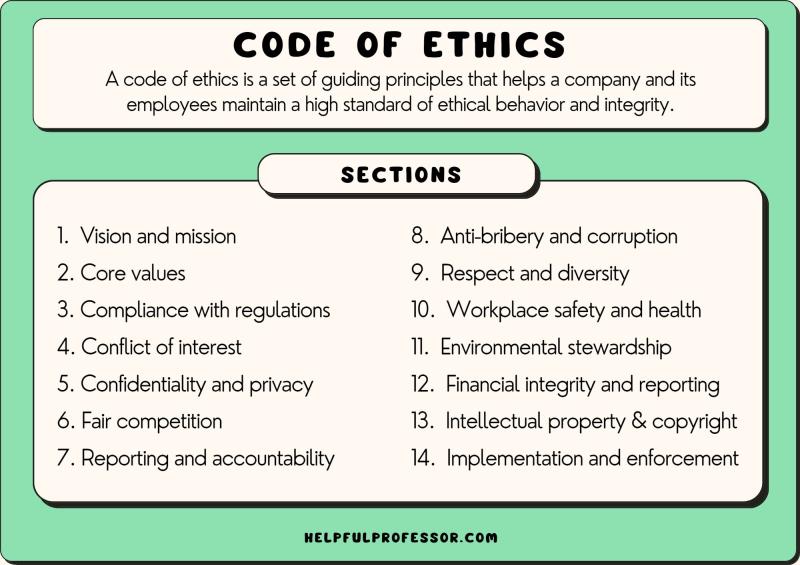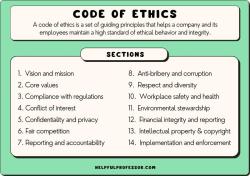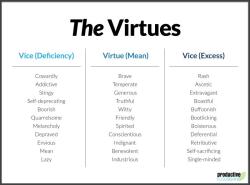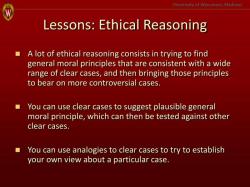What is the meaning of the Code of ethics?
A Code of Ethics is a set of principles or guidelines that outline the ethical standards and expectations for behavior within a particular profession, organization, or group. It serves as a framework to guide individuals in making ethical decisions and behaving in a manner consistent with shared values. The primary purpose of a Code of Ethics is to promote integrity, professionalism, and responsible conduct.
Key components of a Code of Ethics typically include:
Values and Principles:
- Clearly defined values and principles that reflect the moral compass of the profession or organization. These values provide a foundation for ethical decision-making.
Professional Standards:
- Standards of conduct and behavior that are expected from individuals within the profession or organization. This includes guidelines on honesty, integrity, respect, fairness, and other ethical principles.
Responsibilities to Stakeholders:
- Identification of various stakeholders (e.g., clients, employees, the public) and a commitment to fulfilling ethical responsibilities towards them.
Confidentiality:
- Guidelines on the proper handling of confidential information, emphasizing the importance of maintaining privacy and trust.
Conflict of Interest:
- Clear policies addressing conflicts of interest and guidelines on how individuals should navigate situations where personal interests may conflict with professional duties.
Compliance with Laws and Regulations:
- A commitment to comply with relevant laws and regulations, ensuring that ethical behavior aligns with legal requirements.
Accountability and Enforcement:
- Mechanisms for holding individuals accountable for violations of the Code of Ethics. This may include disciplinary procedures and consequences for unethical behavior.
Continuous Improvement:
- A commitment to ongoing education and professional development, encouraging individuals to stay informed about evolving ethical standards and best practices.
Social Responsibility:
- Recognition of the broader impact of actions on society and a commitment to socially responsible practices.
Transparent Communication:
- Guidelines on transparent communication within the organization and with external stakeholders, fostering an environment of openness and honesty.
The significance of a Code of Ethics lies in its ability to provide a shared moral framework that promotes ethical decision-making and behavior within a specific context. Here are some key reasons why a Code of Ethics is important:
Guidance in Decision-Making:
- Helps individuals navigate ethical dilemmas by providing a set of principles to guide decision-making.
Professionalism and Credibility:
- Enhances the professionalism and credibility of a profession or organization by demonstrating a commitment to ethical standards.
Trust and Reputation:
- Builds trust among stakeholders and contributes to a positive reputation, as adherence to ethical principles fosters trustworthiness.
Legal Compliance:
- Ensures that individuals within the profession or organization are aware of and comply with legal requirements, reducing the risk of legal issues.
Employee Morale and Engagement:
- Contributes to a positive work culture by providing employees with a clear ethical framework, fostering a sense of pride and engagement.
Risk Management:
- Helps mitigate risks associated with unethical behavior, protecting the organization from legal, financial, and reputational consequences.
Social Responsibility:
- Encourages a commitment to social responsibility and ethical behavior that goes beyond mere legal compliance.
In summary, a Code of Ethics is a vital tool for promoting ethical behavior, maintaining professional standards, and fostering a positive and responsible culture within a profession or organization.
What fundamental principles constitute the foundation of the Code of Ethics in various professions and industries?
While specific codes of ethics vary across professions and industries, they often share several fundamental principles that serve as a moral compass for professionals. Here are some key pillars that frequently appear:
1. Integrity: Upholding honesty, truthfulness, and ethical conduct in all professional dealings. This means avoiding conflicts of interest, disclosing relevant information, and acting with fairness and impartiality.
2. Objectivity: Maintaining unbiased judgment and basing decisions on facts and evidence rather than personal opinions or emotions. This principle involves resisting pressure to compromise professional standards or manipulate data.
3. Competence and Due Care: Striving for continuous professional development and exercising due care in performing professional duties. This involves maintaining relevant skills and knowledge, avoiding negligence, and delivering services to the best of one's ability.
4. Confidentiality: Protecting sensitive information entrusted to you by clients, patients, or employers. This means avoiding unauthorized disclosure and adhering to data privacy regulations.
5. Professional Behavior: Maintaining a high standard of conduct that reflects positively on your profession. This includes respecting colleagues, clients, and the public, avoiding discriminatory practices, and upholding your reputation through responsible behavior.
6. Public Interest: Recognizing your responsibility to contribute to the greater good and prioritize societal well-being over personal gain. This can involve advocating for ethical practices within your industry, protecting the environment, and ensuring your work benefits the public.
7. Accountability: Taking responsibility for your actions and decisions, and accepting consequences for any ethical lapses. This involves reporting misconduct, cooperating with investigations, and continually striving to learn and improve your ethical conduct.
It's important to note that these principles are not exhaustive, and specific codes of ethics may expand upon them or add additional principles relevant to their field. However, these core values provide a universal framework for ethical decision-making across diverse professions and industries.
By understanding and upholding these principles, professionals can build trust with their clients, colleagues, and the public, and contribute to a more ethical and responsible society.











